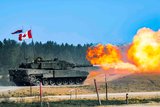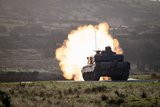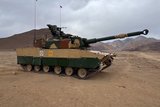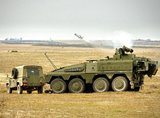Canada looking to expedite purchase of armoured fighting vehicle and a new tank
Canada is improving its Leopard main battle tank fleet but before this is fully completed, it is expected to begin looking for new vehicles.
MPES is customised to meet FMV requirements. (Photo: Revision Military)
The Swedish Defence Materiel Administration (FMV) has received the first units of Military Protective Eyewear Systems (MPESs) that it ordered in 2020 under a seven-year contract with Revision Military.
According to a press release from Revision, the MPES units were manufactured under rigorous specifications and customisation requirements to suit the needs of the Swedish Armed Forces.
MPES comprises ballistic eyewear, low-profile goggles, full-coverage goggles, a universal prescription carrier and ballistic laser protective lenses to protect against a variety of laser hazards.
‘Each product was customized to meet FMV requirements,’ the press release stated.
Revision partnered with CRD Protection, a privately held Swedish company specialising in protective products, to pursue and secure a contract award with the FMV and assist with contract execution.

Canada is improving its Leopard main battle tank fleet but before this is fully completed, it is expected to begin looking for new vehicles.

A surge in aerial threats – from advanced missiles to low-cost drones – is reshaping the way militaries approach air defence, driving demand for flexible, multi-layered solutions.

In a bid to accelerate delivery of the British Army’s Challenger 3 main battle tank, which has just carried out its first crewed firings with the latest Rheinmetall 120mm L55A1 smoothbore gun, the UK has opted for an unconventional approach.

Since signing a contract to purchase 54 M1A2 Abrams tanks last year, Romania has been looking into options to buy more tanks, but it could cast the net wider than Abrams with funding considerations potentially set to shape the outcome.

The Indian Army’s modernisation plans reflect the lessons learned from ongoing conflicts and threats as it continues its push for indigenous capabilities.

The Portuguese Army is undergoing an overhaul of its platforms with the latest move towards Boxer 8x8 vehicles marking a major step in reforming and modernising its brigades.